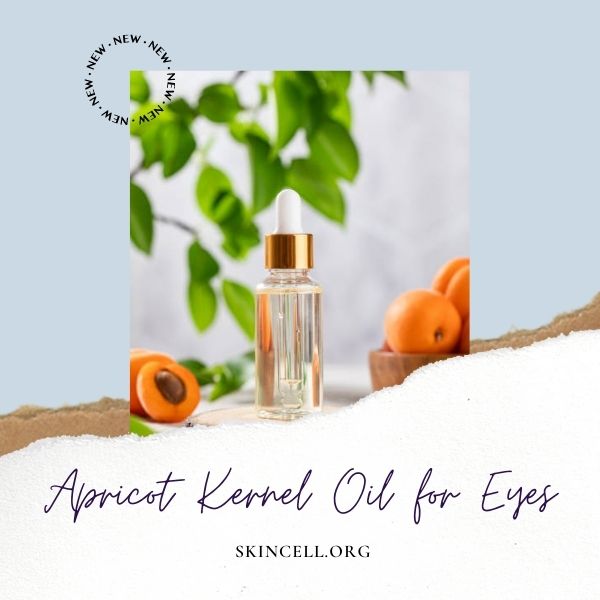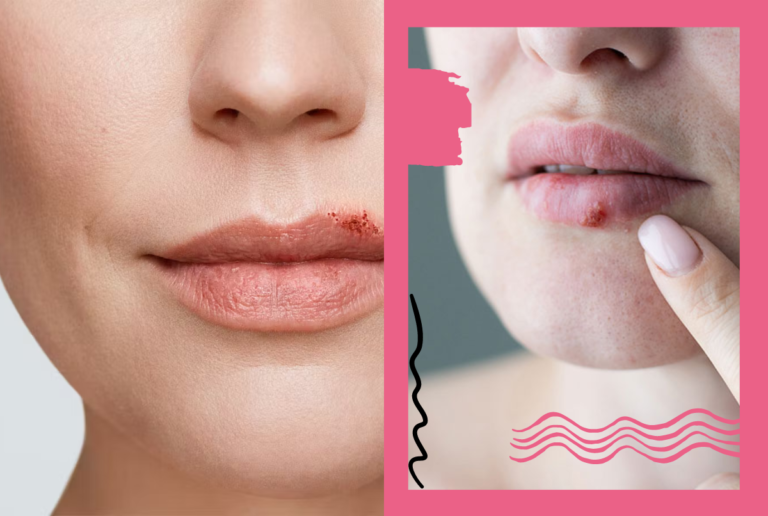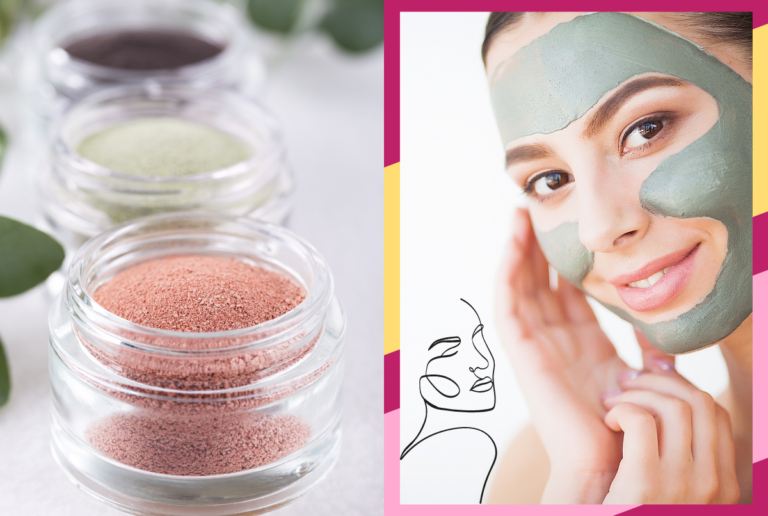Apricot Kernel Oil For Eyes
Thin and delicate, the skin around the eyes is different from other parts of the body.

Facial skincare consists of maintaining and improving the appearance of the face, but the skin around the eyes is unique and probably the thinnest of the entire body. Apart from being thin, the skin also has smaller pores that make it difficult for regular face creams to absorb within.
Ideally, eye cream or similar products should have a light texture and thereby be easy to absorb. Eye creams or oils should also be gentle enough to not irritate the skin tissues. The gentle nature of the product is especially emphasized due to the close proximity to the eye, which can be easily affected by harsh products.
One such oil that lives up to these expectations is apricot kernel oil, and we’ll be discussing its use in detail today. But before we jump into the skincare aspects, let’s understand what apricot kernel oil is.
What Is Apricot Kernel Oil?
Sweet and scrumptious apricot fruits are enjoyed as a snack or culinary creations by many. The fuzzy fruit finds its origins in East and Central Asia, and the tough kernel within the fruit flesh has a number of uses. Apricot kernel oil is derived from pressing the kernel to release the oils which are used for its skin benefits.
The cold-pressed oil obtained from apricot kernels is light, pale-yellow in color, with a mild aroma. When rubbed onto the skin, the oil absorbs quickly and does not leave much residue. [1] According to traditional Eastern medicine, apricot kernel oil can help treat ulcers, inflamed skin, and swelling.
It also finds uses in hair, skin, and health care due to its hydrating and nourishing properties. With immunity-boosting elements, this oil is added to anti-aging skincare products to keep the skin soft and plump. Also, since apricots belong to the same drupe family as almonds, they are often used as a substitute for almond oil.
Why Use Apricot Kernel Oil?
1. Beneficial Effects Of Vitamins A and E
Apricot kernel oil is valued for its anti-aging and anti-inflammatory properties in the skin and beauty industry. The most potent components in apricot oil are vitamin E and vitamin A, both of which are powerful antioxidants with proven skin benefits.[2] Both these vitamins fight free radicals in the skin and protect it from wrinkles, fine lines, and other forms of aging.[3]
2. Presence Of Unsaturated Fatty Acids
It’s important to note that oil obtained from the apricot kernels contains unsaturated fats – oleic acid, stearic acid, and linoleic acid. These fatty acids have the property of restoring skin cell structure to its previous form, which directly helps improve skin tone and texture.
The fatty acids present in apricot oil have a variety of benefits for skin, hair, and health. For instance, oleic acid helps seal the moisture within the skin, keeping it hydrated. Palmitic acid works to soften the skin and restore the natural skin barrier. Linoleic acid prevents skin scaling and reduces inflammation and acne that affect sensitive skin.[4]
3. Perfect For Eye Skin
Also, apricot oil has a thin consistency and is easily absorbed, making it an excellent oil for eye skin. Since it is comparatively gentle in action, apricot kernel oil makes for the perfect component for hydrating the skin around the eyes. Upon application, the oil does not feel sticky or oily; instead, it seeps into the skin and improves its texture and quality.
Special Needs For Skin Around The Eyes
In the skincare and beauty industry, it is essential to remember that the skin around the eye is different from the rest of the face.[5] Firstly, since the skin is in close proximity to the eye, it becomes a sensitive area that gets irritated easily.
Using strong face creams or lotions near the eye can cause watering and burning, which beauty companies take into consideration. Since the skin around the eyes does not have oil glands, it is prone to dryness and needs proper hydration to maintain a soft and even appearance.
Also, the thin nature of the skin does not make things any easier. In fact, this skin shows the first signs of aging since it is prone to creasing and wrinkling in the absence of a plumping agent. This skin is also susceptible to developing dark circles due to the hollows underneath the eyes.
This is why it is common for some eye creams to have a lightning effect so as to even out the skin pigmentation. In short, the ideal eye skin oil or lotion should be highly absorbent, nourishing, moisturizing, and non-irritating to the eyes.
Benefits And Uses Of Apricot Oil For Skin
Using cold-pressed apricot oil mixed with essential oil or carrier oil can produce a number of useful concoctions for the skin. Even if apricot oil is used as a stand-alone product, it still has the necessary nutritional values that provide a range of health benefits.
1. Hydration
Apricot kernel oil is a powerful emollient, and it assists in lubricating the skin. As a result, moisture remains intact on the skin, leaving it soaked up and hydrated. Apart from managing dry skin, this also plumps the cells giving the user even skin with reduced lines.
2. Soft And Smooth Skin
Skin texture drastically improves once it gets the hydrations it needs. Due to the natural process of trapping moisture, the skin feels smooth like satin. With the presence of vitamin A, the skin becomes softer and much more velvety upon touch.[6] This could also be due to the fact that this vitamin successfully exfoliates the skin cells and keeps them free of unwanted particles. These skin-softening properties are evident no matter the skin type.
3. Contains Essential Fatty Acids
The fatty acid profile of apricot oil is quite valuable for skin, hair, and health in general. These omega oils form a protective barrier for the skin and keep it protected. They also contribute to providing nourishment to the skin and keeping it healthy and soft.
In addition, the action of other vitamins and minerals with essential fatty acids penetrates the skin and protects the surface layer.
4. Anti-Aging And Anti-Inflammatory Properties
With the presence of powerful antioxidants, the cell turnover rate has a drastic improvement, thus offering youthful skin to the user. As the new cells are produced, they replace the older ones, giving the face and skin a fresh and hydrated appearance.
Wrinkles and fine lines are visibly reduced, and the skin appears to be plumper after using apricot oil. Apart from that, the anti-inflammatory properties in the oil soothe skin irritation and help calm redness in sensitive skin.[7] Upon frequent use, acne breakouts will reduce too.
5. Hair And Beauty Treatments
Apricot kernel oil is a common ingredient in hair growth oil and massage oil. It nourishes and moisturizes the skin and is used in DIY lotions. Apricot oil is a great choice for making up the fat component for natural shampoo or soap at home.
Herbal agents combined with apricot kernel oil can produce natural oil cleansers and makeup removers. This ingredient can remove oil-based makeup
6. Helps Acne-Prone Skin
Frequent application of apricot oil for just a few minutes can work wonders on the skin tone. And its anti-inflammatory nature combines with essential oils that go skin deep and provide a multitude of skin benefits. Since the oil is light, apricot kernel oil can seep within the pores easily and deliver anti-inflammatory benefits.
7. Relaxing Lotion Or Scrub
Cold pressing apricot kernels releases pure oil that is revered in traditional Chinese medicine as a powerful medicine. It is often associated with reducing swellings, ulcers, wounds, and improved immunity. While the ancient world administered this oil for healing effects, nowadays, its uses are cosmetic.
Unrefined apricot kernel oil is often used to achieve glowing and young-looking skin. The benefits of apricot oil are known far and wide for its rejuvenating effects on all skin types. While it has many therapeutic properties on its own, combining apricot kernel oil with hyaluronic acid and essential oils makes for an unmatched formula for dewy and glowing skin.
Why Use Apricot Kernel Oil For Skin Around Eyes?
Apricot oil is non-greasy yet moisturizing to the skin, but that’s not the only benefit of using it. Here are a few reasons why apricot oil is perfect for the skin around the eyes-
1. Easily Absorbed
Other oils are heavy and greasy, which settle on the skin surface and form a sticky layer. However, this problem does not occur with apricot oil because it is naturally lightweight and easily absorbed.
2. Maintains Skin Tone
Apricot oil plays a role in maintaining skin elasticity, tone, texture, and overall plumpness. This means that regular application can reduce wrinkles, fine lines, and skin suppleness. Plus, it also helps balance moisture, thus being effective in treating dry skin and puffiness. Apricot oil can also reduce pigmentation and prevent the formation of dark circles.
3. Beneficial Components
a) Vitamin A
Beta carotene, a form of vitamin A, is found in apricot kernel oil, and it has antioxidant properties that prevent free radical oxidation. This vitamin has a proven history of reducing signs of premature aging, and it is widely used in the skincare industry to improve skin tone.
With an increase in collagen production, vitamin A combats the breakdown of elastin and collagen that occur during aging. [8]It also helps in the repair of the cell structure on the topmost layer of the skin, the epidermis. Due to this, UV damage from natural sunlight is curbed, and the skin does not have to deal with the negative effects of sun damage.
Most skin types have hyperpigmentation beneath the eyes, and vitamin A can help reduce melanin clusters that are responsible for dark circles.
b) Vitamin E
The skin around the eyes is sensitive; thus, it can easily develop blemishes when exposed to the sun. Similar to vitamin A, tocopherol or vitamin E protects the skin against sunburn and UV ray damage. Vitamin E is a particularly beneficial component for treating dehydrated skin because it can penetrate into the deep layers of skin and hydrate them. [9]
Apart from moisturizing dry skin, it also helps plump the skin so that it appears more youthful. Well-hydrated and plump skin is less likely to show fine lines and wrinkles, resulting in even-looking skin. Since vitamin E is a powerful antioxidant, it can neutralize the free radicals and protect skin cells from oxidative damage.[10]
How To Use Apricot Kernel Oil For Eyes?
There are various ways in which apricot kernel oil can be applied to the skin. One may use it with carrier oils like coconut oil, avocado oil, or olive oil. Or make a homemade cream using apricot oil, vitamin C, and other herbal agents. Otherwise, a few drops of plain apricot kernel oil should be good enough to enhance the skin effectively.
Ingredients:
- 1 teaspoon apricot kernel oil
- ½ teaspoon aloe vera gel
- 1 vitamin E capsule
Preparation Method:
Mix all ingredients in a bowl and later store in a glass bottle. Take a small amount of the mixture on your fingers and gently apply around the eye and leave it for a while. If it feels too heavy, remove the excess because it is best to use it in limited amounts.
Avoid tapping the apricot oil on the eyelids because it can seep into the eyes and cause irritation. With its nourishing and anti-inflammatory properties, one can use it at any time of the day, and it is best used during dry winters.
Final Words
The benefits of apricot oil are endless; however, one can find its most common uses in reducing dryness and managing acne-prone skin. Its anti-inflammatory properties ensure that skin stays in the best condition possible, while its emollient properties bring the element of softness and smoothness.
After all is said and done, apricot oil is truly the best oil for the skin around the eyes. And using it on a regular basis will show its effects pretty quickly, so be sure to give it a try.
References–
[1] https://beneficialbotanicals.com/absorption-rates-of-carrier-oils/
[3]https://pubmed.ncbi.nlm.nih.gov/16011463/
[4]https://www.ncbi.nlm.nih.gov/pmc/articles/PMC7037798/
[5]https://www.everydayhealth.com/skin-beauty/specific-guide-to-caring-for-the-skin-around-your-eyes/
[6]https://www.ncbi.nlm.nih.gov/pmc/articles/PMC6791161/
[7]https://www.ncbi.nlm.nih.gov/pmc/articles/PMC4314870/
[8]https://pubmed.ncbi.nlm.nih.gov/17515510/






